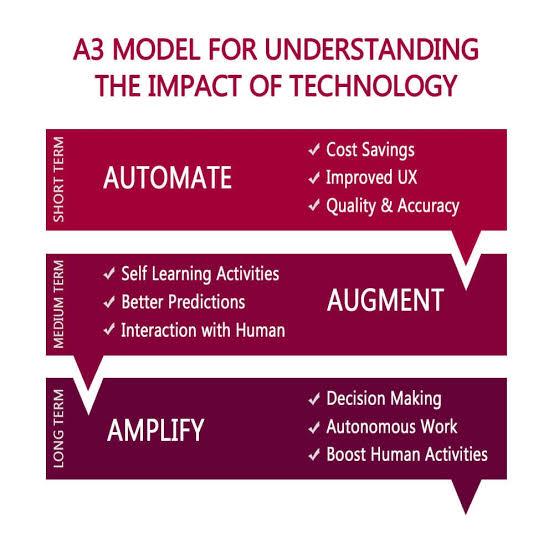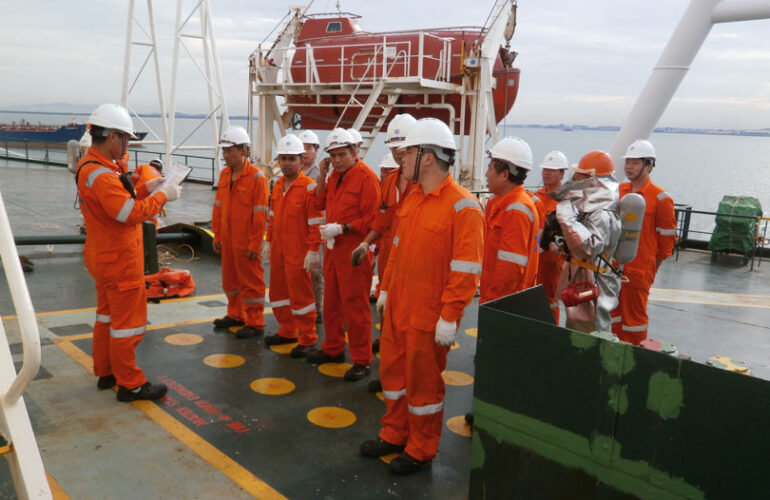Today, Artificial Intelligence is bigger than ever, becoming a reality from remaining a mere fiction. It is evident that, across industries, AI is being embraced in smaller and larger ways by organizations. Technological advancement has significantly played a pivotal role in shaping the changes in workplaces as well as work in one way or another. Technology aiding people operations isn’t alien anymore!! The impact of technology was always seen with an eye of suspicion and fear by employees entailing job losses and inability to manage tasks. However, it is proving to be a boon for employees by virtue of the advent of tools like RPA, collaboration tools, digital assistants, etc. as part of the technology disruption in the recent past. Digitalization of people management as employee experience, gaining larger momentum is definitive proof to organizations embracing technology in the people management landscape. While the technology is more closely seen as giving way to repetitive and mundane tasks to get automated, augmentation and amplification are the next waves where the AI would enable improved people management.

Gartner reported in 2017 that AI will automate 1.8 million people out of work by 2020. Based on research by Bersin by Deloitte, nearly 40% of companies are using some form of AI in HR alone. AI makes the task simpler in HR. It works with large numbers and data to predict a trend. For example, in hiring, AI uses the data of successful positions to predict the success of a candidate applying for that role. This makes screening more quantifiable and eliminates human biases to a great extent, which in turn ensures candidate satisfaction. Another implication of AI in HR is the shift in the role of managers. AI makes the task of managers more simpler as the most tedious and time-consuming part ie. information can be taken care of by the technology whereas the managers can focus on the human element of the employee thus leading to more harmonious work culture.
Some areas that are positively impacted by technology:
Improving candidate experience- The ultimate aim of the Human Resource department in the office is to ensure that the employees are happy. Almost all organizations, make use of technology for screening candidates. Interactions with candidates through chatbots and AI tools, solving their queries about the new role, asking for feedback and information are some of the latest inclusions.
Automation of Administrative tasks- By automating mundane and repetitive tasks, HR professionals can concentrate more on the core and the strategic aspects of organizational growth. They can focus on the pain area at work and ensure to engage the employee better for increased productivity. An organization should give due emphasis to automate the tedious work. It is a belief that automation would reduce jobs, it is not entirely true. It is basically aiming at creating jobs that are actually crucial and can only be done through humans. In such a scenario, people should keep
themselves updated on the fast-paced work culture. For example, repetitive questions that employees often ask regarding policy matters, including basic dos & Don’ts and standard questions related to leaves and appraisals. Such problems can be easily resolved by using AI-powered tools.
Organizational learning and development- AI is replacing the traditional modes of workplace learning. Employees are given exposure to personalized learning. New generation employees are finding it very attractive. Even if they have any questions or doubts, they can be very easily addressed through chatbots or even emails and virtual meeting rooms. While most skilling and training is done by HR professionals, a series of AI-supported programs can complement the entire training system. Short-duration digital courses based on micro-learning allow individuals to seek learning in an online module without an instructor.
Some major impacts/trends of Technology and Artificial Intelligence-
• Flexible Workplaces
• Internet of Things, 5G aims at giving ultimate freedom, to work from any location
• Increased work-life balance, giving individuals space to enjoy personal lives too
• Demographic and socio-economic disruptions, advanced technology creating a platform for automation and machine learning
In today’s complex environment, HR has an important role to play. The organization dynamics have shifted, and the focus is not only on employee satisfaction but also employee engagement. As the new age generation is entering the workplace, expectations and priorities have become quite different. Fast-paced work cultures require fast-paced technology and Artificial Intelligence is a boon. Little changes can positively impact the motivation level of Generation Z. People Analytics and Business Intelligence has become crucial in today’s HR strategies. Automation in HR aims at streamlining HR processes by strengthening recruitment, providing fast and easier access to employee data,
improving communication across platforms, engaging and retaining employees, and implementing policies. AI is a boon to recruiters and HR departments as it saves time and increase efficiency. HR managers who don’t use automation for tasks such as payroll, applicant tracking, training, job postings lose an average of 14 hours a week completing these tasks manually. AI Will Take Over Specific HR Jobs, not HR Roles. It will replace or assist HR with activities such as recruiting, engaging, evaluating, and retaining talent. But it is still a tool. It becomes
equally important to not compromise with the transparency of the technology.
Written by Deeksha Srivastava
MBA-HR (SCMHRD),Intern at Nevoxel




